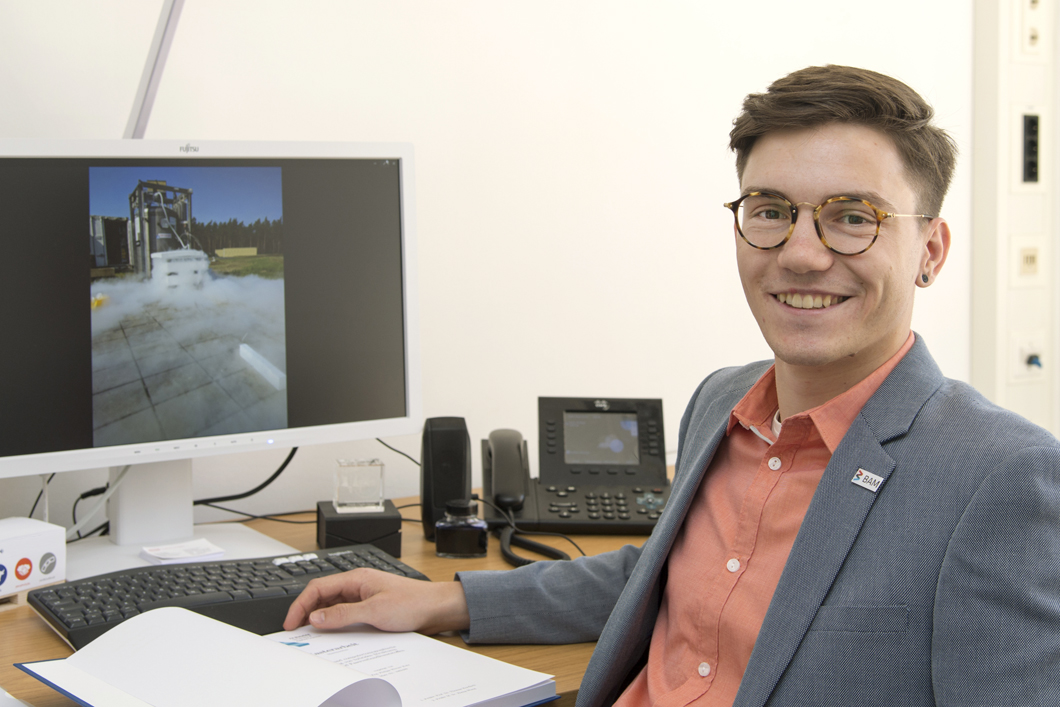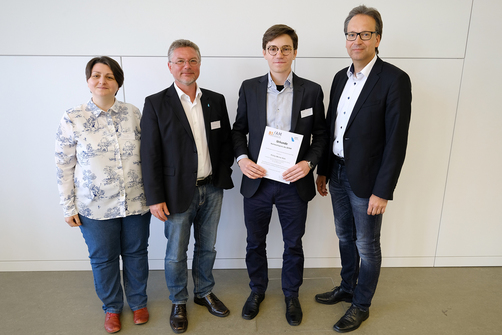
Philipp Kutz is researching at BAM on new LNG transport tanks that are safe, lighter and more cost-efficient
Source: BAM
Philipp Kutz of BAM’s Tanks for Dangerous Goods and Accident Mechanics Division is researching new materials and their potential uses. He recently received the Young Scientist Award from the Bielefeld Institute for Applied Materials Research (BIfAM) for his master's thesis entitled "Production and computer tomographic investigation of hybrid metal and fibre composite structures", which was developed in cooperation between the Bielefeld University of Applied Sciences and Paderborn University. "Above all, I would like to thank Prof. Dr.-Ing. Thomas Kordisch and the team of the Materials Testing Laboratory at the University of Applied Sciences of Bielefeld for their great support for my master's thesis", emphasises the young scientist.

Philipp Kutz (2nd from right) won the second Young Scientist Award from BIfAM. Dr. Katharina König (BIfAM), Prof. Dr. Christian Schröder (Vice President for Research, Development and Transfer, Head of BIfAM) and Prof. Dr.-Ing. Thomas Kordisch (BIfAM) share the event with him (from left).
Source: FH Bielefeld, Photo: Katharina Stupp
Philipp Kutz is currently involved in developing new liquefied natural gas (LNG) transport tanks as part of a cooperation project within the Central Innovation Programme for Medium-Sized Enterprises (ZIM). The aim is to reduce the weight and costs of transport tanks by using new materials and a new design. However, the material to be used is not yet sufficiently characterised for this usage. Therefore, technical and mathematical basics must first be developed for future production of transport tanks.
The focus is on developing, performing and evaluating various experiments using liquid nitrogen to determine characteristics of the new material. For safety reasons, LNG to be contained in the transport tanks cannot be used in the experiments. Some of the tests are carried out on BAM’s Technical Safety Test Site at Horstwalde. At the same time, work is carried out on simulation models in order to numerically map the experiments.
LNG as an alternative to oil is becoming increasingly important. Since no global pipeline network exists, LNG must be transported in tanks, by lorries and in ships. "Weight savings and cost reduction for the tanks are enormously important", says Philipp Kutz. Research on materials for safe and economic transport tanks is therefore of great importance for the energy industry.


